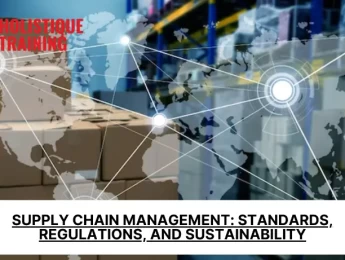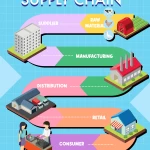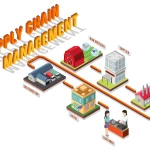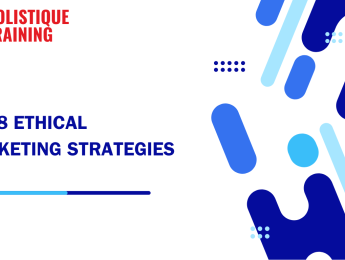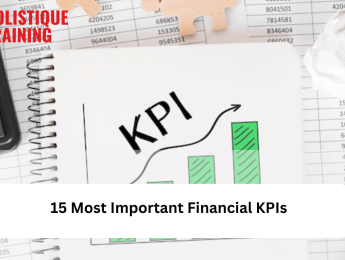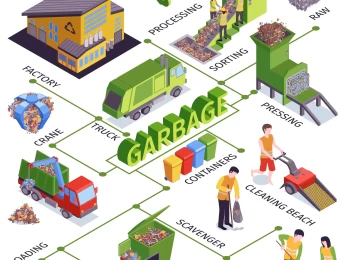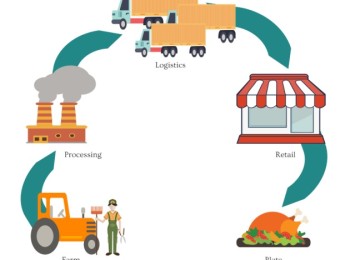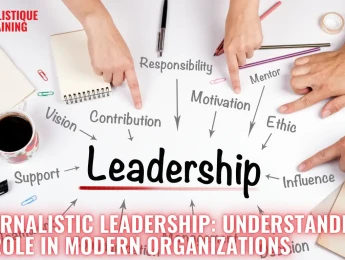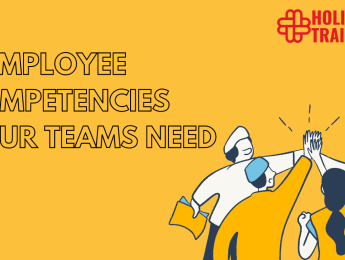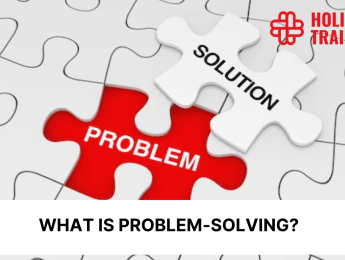- Table of Contents
- Introduction
- What Is Supply Chain Management?
- Supply Chain Management Standards and Regulations You Should Know
- Why Is Having Supply Chain Management Standards Important?
- Responsible Supply Chain Management Accounting
- What Is Sustainable Supply Chain Management?
- Steps to Integrate a More Sustainable Supply Chain
- The Future of Supply Chain Management
- Conclusion
Introduction
Imagine a world without supply chains - where products don't seamlessly make their way from manufacturers to consumers, where stores are devoid of goods, and where the global economy grinds to a halt. Fortunately, this is just a thought experiment, because in reality, supply chains are the lifeblood of modern businesses. They are intricate webs of processes, people, and technology that ensure products reach the right place at the right time. However, managing these complex networks effectively is no small feat. This is where Supply Chain Management (SCM) steps in, acting as the guiding force behind the scenes, ensuring efficiency, compliance, and sustainability. In this blog post, we will delve deep into the world of SCM, exploring its standards, responsible accounting practices, sustainable integration methods, and glimpsing into its promising future. Join us as we unravel the secrets behind the seamless flow of products that drive our global economy.
What Is Supply Chain Management?
At its core, Supply Chain Management (SCM) refers to the strategic coordination and oversight of all activities involved in the production and delivery of goods and services. This encompasses everything from raw material sourcing to production, logistics, distribution, and finally, the delivery of the end product to consumers. SCM involves a holistic approach, where businesses optimise their processes to maximise efficiency, reduce costs, and enhance customer satisfaction.
Supply Chain Management Standards and Regulations You Should Know
In the intricate world of Supply Chain Management (SCM), adhering to standards and regulations is imperative. These guidelines, set forth by international bodies and governments, ensure ethical practices, fair trade, and environmental responsibility. Let's explore some key standards and regulations in various regions around the world:
United States
In the United States, the Dodd-Frank Act Section 1502 has significant implications for supply chain management, especially in the electronics industry. This regulation requires companies to report on the use of conflict minerals (like tantalum, tin, gold, and tungsten) originating from conflict zones, ensuring that businesses are not inadvertently supporting armed conflict or human rights abuses through their supply chains.
Additionally, the U.S. Customs-Trade Partnership Against Terrorism (C-TPAT) programme aims to enhance the security of supply chains by establishing criteria for businesses to follow. By participating in C-TPAT, companies demonstrate their commitment to securing their supply chains against potential terrorist threats.
United Kingdom
The UK Modern Slavery Act is a pioneering legislation that requires businesses with a global turnover exceeding a specified threshold to disclose the actions they have taken to eradicate modern slavery and human trafficking from their operations and supply chains. This act underscores the UK's commitment to combating forced labour and exploitation worldwide, making it crucial for businesses to conduct due diligence in their supply chains.
Middle East
In the Middle East, several countries have implemented stringent regulations to ensure the quality and safety of products within their borders. For instance, the United Arab Emirates (UAE) has established the Emirates Conformity Assessment System (ECAS) to verify that imported products meet the necessary safety and quality standards. SCM professionals operating in the Middle East must navigate these regional regulations to ensure seamless cross-border trade.
Europe
Within the European Union, the General Data Protection Regulation (GDPR) plays a significant role in supply chain data management. Companies must carefully handle personal data across their supply chains to comply with GDPR, ensuring the privacy and security of customer and employee information. Non-compliance can result in hefty fines, making it imperative for businesses to implement robust data protection measures.
Moreover, the EU's Waste Electrical and Electronic Equipment (WEEE) directive establishes guidelines for the responsible disposal and recycling of electronic waste. This directive impacts supply chains by necessitating proper handling of electronic products at the end of their life cycle, encouraging a more sustainable approach to waste management.
Navigating the Diverse Regulatory Landscape
For global businesses, understanding and complying with these diverse regulations is a complex yet essential task. SCM professionals must stay updated on the evolving legal landscape in different regions. This knowledge not only ensures compliance but also fosters trust among consumers, investors, and stakeholders. By embracing these standards and regulations, businesses can demonstrate their commitment to ethical practices, thereby contributing to a more responsible global supply chain ecosystem.
Why Is Having Supply Chain Management Standards Important?
SCM standards are not mere bureaucratic checkboxes; they are the bedrock upon which responsible and ethical business practices are built. Let’s delve into why having supply chain management standards is of paramount importance:
Ensuring Consistency and Quality
Supply chain management standards provide a uniform framework, ensuring consistency in the quality of products and services. By adhering to established norms, businesses guarantee that their offerings meet predetermined benchmarks, fostering customer satisfaction and loyalty. Whether it's the reliability of a smartphone or the freshness of organic produce, standards instil confidence in consumers, strengthening the brand’s reputation.
Enhancing Transparency and Accountability
Standards in SCM promote transparency throughout the supply chain. From sourcing raw materials to the final product reaching the shelves, stakeholders can trace each step, ensuring integrity and accountability. Transparent supply chains build trust among consumers who increasingly seek authenticity, ethical sourcing, and social responsibility. Businesses showcasing transparent practices create a positive image, which can translate into a competitive advantage.
Table 1: Benefits of transparent supply chain
Transparent Supply Chains | Description | Benefits |
Enhanced Consumer Trust | Clear visibility inspires confidence. | Builds a loyal customer base. |
Improved Supplier Relationships | Open communication fosters collaboration. | Strengthens partnerships. |
Faster Problem Resolution | Real-time data aids rapid decision-making. | Minimises disruptions. |
Compliance with Regulations | Clear records ensure legal adherence. | Avoids fines and penalties. |
Positive Public Relations | Transparency earns positive media coverage. | Enhances brand reputation. |
Mitigating Risks and Ensuring Compliance
SCM standards act as shields, guarding businesses against various risks. By adhering to regulations and industry-specific standards, companies reduce the likelihood of legal complications and financial losses. Moreover, standards often incorporate risk management protocols, helping businesses anticipate and proactively respond to challenges. Compliance with international and regional regulations ensures that businesses can navigate global markets without legal impediments.
Promoting Ethical Practices
Ethical considerations lie at the core of many supply chain management standards. From ensuring fair labour practices to preventing child labour and promoting diversity, these standards champion humane working conditions. By following ethical guidelines, businesses contribute to social welfare, uphold human rights, and foster a sense of responsibility within the industry. Ethical practices not only benefit the workforce but also resonate positively with consumers who increasingly favour socially responsible brands.
Driving Continuous Improvement
Standards are not static; they evolve in response to changing technologies, consumer demands, and environmental concerns. Adhering to SCM standards necessitates a commitment to continuous improvement. Businesses engage in ongoing assessments, innovation, and training to meet evolving standards, thereby fostering a culture of learning and adaptation. This continual pursuit of excellence propels industries forward, encouraging innovation and efficiency.
Building Sustainable Supply Chains
Sustainability is no longer a buzzword but a fundamental necessity. SCM standards often incorporate eco-friendly practices, promoting sustainable supply chains. By reducing waste, optimising energy use, and embracing circular economy principles, businesses can mitigate their environmental impact. Sustainable supply chains safeguard natural resources, support environmental conservation, and align businesses with the global effort to combat climate change.
In essence, SCM standards are the moral compass guiding businesses through the complexities of the global marketplace. They encapsulate principles of fairness, transparency, and sustainability, shaping a future where commerce isn't just about profit margins but also about social responsibility and ethical stewardship. Embracing these standards isn't just a choice; it’s a commitment to a better, more responsible world where businesses thrive, consumers trust, and the planet prospers.
Responsible Supply Chain Management Accounting
In the realm of Supply Chain Management (SCM), accounting isn't confined to balancing ledgers and calculating profits. Responsible SCM accounting is a multifaceted approach that delves deep into the ethical and environmental aspects of business operations. It's a commitment to transparency, accountability, and sustainable practices, ensuring that financial success is achieved without compromising ethical integrity. Here's how responsible SCM accounting goes beyond numbers, painting a richer, more ethical picture of business practices:
1. Comprehensive Assessment of Environmental Impact
Responsible SCM accounting starts by evaluating the environmental footprint of the entire supply chain. This assessment goes beyond immediate operations, considering factors like transportation methods, energy usage, and waste generation. By quantifying these impacts, businesses gain insights into areas where they can minimise their environmental footprint. It’s not just about minimising costs; it's about minimising ecological harm.
2. Ethical Labor Practices and Fair Trade
Beyond financial figures, Responsible SCM accounting scrutinises labour practices within the supply chain. It ensures that all employees, from factory workers to transportation staff, are treated ethically, with dignity and respect. This includes fair wages, reasonable working hours, and safe working conditions. By tracking and promoting these ethical labour practices, businesses create a positive impact on the lives of workers and their communities.
3. Transparency Across the Supply Chain
Accounting for responsible supply chain management involves establishing transparency at every level. This means knowing where raw materials are sourced, understanding the manufacturing processes, and tracking the journey of products to consumers. Transparent supply chains build trust among stakeholders, showcasing a commitment to integrity. Detailed records and open communication with suppliers and customers alike contribute to this atmosphere of trust.
4. Social and Community Development Initiatives
Responsible SCM accounting extends to social responsibility initiatives within the communities where businesses operate. This includes supporting local education, healthcare, and infrastructure development projects. By investing in these initiatives, companies contribute to the well-being of the communities that sustain their operations. It's not just a moral obligation; it's an investment in the future stability and prosperity of these regions.
5. Risk Management and Contingency Planning
Responsible SCM accounting involves identifying potential risks within the supply chain, whether they are related to environmental factors, geopolitical issues, or economic fluctuations. By recognising these risks, businesses can develop contingency plans, ensuring that the supply chain remains resilient even in challenging times. Responsible accounting thus contributes to the long-term sustainability and stability of the entire operation.
6. Measuring Social Impact
Responsible SCM accounting isn’t just about financial bottom lines; it's about measuring social impact. Businesses quantify the positive changes they make in communities, whether through employment opportunities, educational support, or environmental conservation efforts. These metrics provide a holistic view of the business's contribution to society, illustrating that profit-making can coexist harmoniously with social betterment.
In essence, responsible SCM accounting transforms the traditional role of accounting. It becomes a tool for social change, a mechanism for ethical decision-making, and a beacon of transparency. Businesses embracing this approach not only demonstrate their commitment to responsible practices but also pave the way for a future where profitability is intertwined with social and environmental responsibility. Through responsible accounting, businesses redefine success, emphasising not just what is gained but what is given back to the world.
What Is Sustainable Supply Chain Management?
In the modern business landscape, Sustainable Supply Chain Management (SSCM) stands as a beacon of responsible commerce. It represents a paradigm shift, emphasising the integration of social, environmental, and economic considerations into supply chain processes. Unlike traditional supply chain management, which primarily focuses on efficiency and cost-effectiveness, SSCM places a premium on ethical practices and long-term environmental conservation.
Holistic Approach to Environmental Stewardship
At its core, SSCM is about reducing the carbon footprint and conserving resources. It involves adopting green practices like energy-efficient manufacturing, optimising transportation routes to minimise emissions, since supply chains are responsible for 60% of global emissions, according to Accenture, and implementing eco-friendly packaging solutions. By embracing renewable energy sources and promoting waste reduction, businesses can significantly lessen their environmental impact.
Ethical Labour Practices and Social Responsibility
Sustainable Supply Chain Management isn't limited to ecological concerns; it extends to ethical labour practices and social responsibility. It emphasises fair wages, safe working conditions, and humane treatment of workers throughout the supply chain. Ethical sourcing principles ensure that suppliers uphold labour standards, preventing exploitation and promoting human rights. SSCM is not just about what's produced but how it's produced, ensuring dignity and fairness for every worker involved.
Embracing Circular Economy Principles
One of the fundamental tenets of SSCM is the adoption of circular economy principles. Instead of following the traditional linear model of "take-make-dispose," businesses in a circular economy design products for reuse, refurbishment, and recycling. This approach reduces waste and conserves resources, creating a sustainable loop where products have a second life, minimising the burden on landfills and natural resources. Also, according to IBM, as cited by Zipdo, more than half of consumers, approximately 54%, are willing to pay a premium for products with social responsibility attributes.
Supply Chain Transparency and Accountability
SSCM demands transparency and accountability from every stakeholder in the supply chain. It requires businesses to trace the origins of raw materials, ensuring they come from ethical sources. Moreover, transparency extends to sharing environmental impact data, enabling informed decision-making by consumers. Businesses adhering to SCM principles are open about their practices, building trust with consumers and stakeholders through honesty and accountability.
Long-term Economic Viability
Contrary to the misconception that sustainability compromises profitability, SSCM fosters long-term economic viability. By optimising resources, reducing waste, and enhancing efficiency, businesses save costs in the long run. Additionally, eco-conscious consumers increasingly prefer sustainable products, creating a market demand that sustainable businesses can tap into. This trend not only ensures economic sustainability but also positions businesses as leaders in responsible commerce.
In essence, Sustainable Supply Chain Management is a multifaceted approach that recognises the interconnectedness of economic prosperity, environmental health, and social equity. It represents a commitment to ethical business practices, fostering a harmonious balance between commerce and the planet's well-being. By embracing SCM, businesses pave the way for a sustainable future, where responsible practices aren't just commendable but essential for the survival of the global ecosystem.
Steps to Integrate a More Sustainable Supply Chain
According to a recent EY survey, 8 in 10 supply chain executives are intensifying their focus on sustainable supply chain operations. Embracing sustainability in SCM isn’t merely a trend; it’s a moral and strategic imperative. A sustainable supply chain not only reduces environmental impact but also enhances operational efficiency and builds brand reputation. Here are the key steps to integrate a more sustainable supply chain, ensuring that businesses thrive while safeguarding the planet for future generations:
1. Assessment and Planning
The first step toward sustainability is a comprehensive assessment of the existing supply chain. This involves mapping the entire process, from raw material extraction to product disposal. By understanding each step, businesses can identify areas with the highest environmental impact and set clear sustainability goals. A well-thought-out sustainability strategy is essential, outlining objectives, timelines, and measurable outcomes.
2. Supplier Collaboration and Ethical Sourcing
Collaborating closely with suppliers is fundamental to building a sustainable supply chain. Encourage suppliers to adopt eco-friendly practices and adhere to ethical labour standards. Transparent communication with suppliers ensures that they understand and support your sustainability goals. Embrace fair trade principles and consider sourcing raw materials locally to reduce the carbon footprint associated with transportation.
3. Innovation and Technology
Harness the power of innovation and technology to drive sustainability. Implement cutting-edge technologies like Internet of Things (IoT) devices, blockchain, and data analytics. These technologies provide real-time insights into supply chain operations, enabling proactive decision-making. For instance, IoT sensors can monitor environmental conditions during transportation, ensuring products remain viable without excessive wastage.
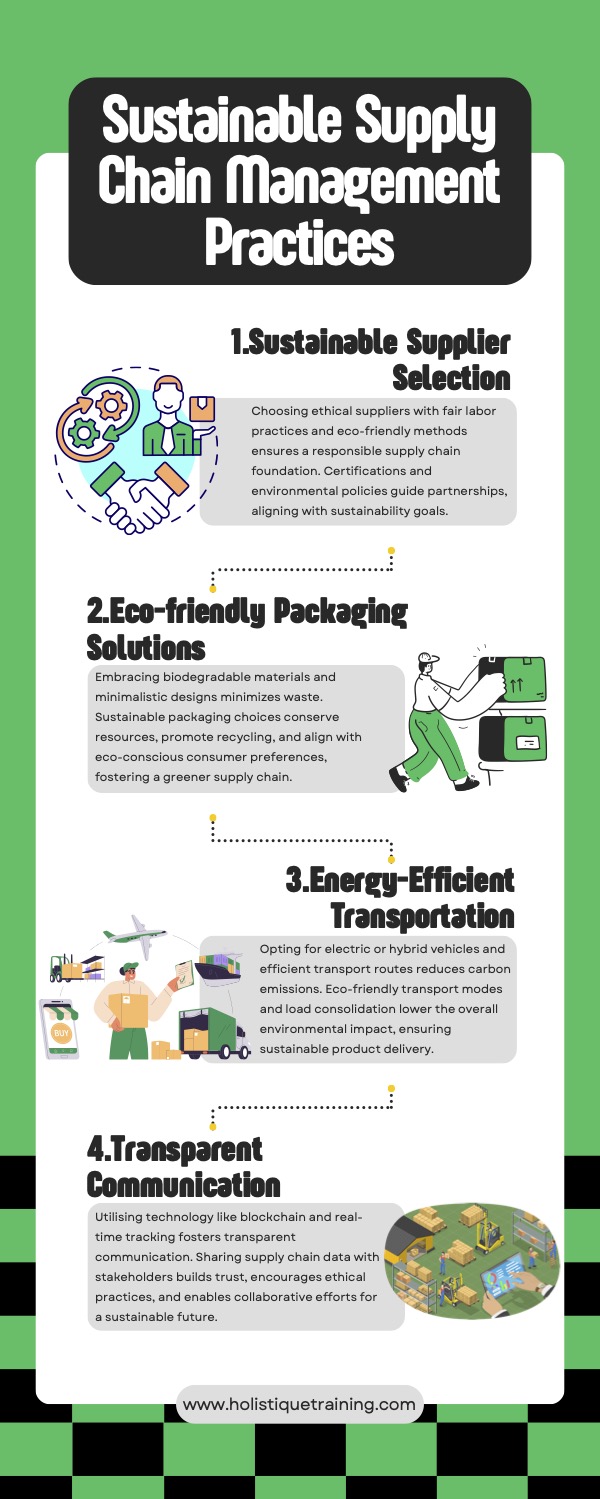
4. Resource Optimisation
Optimising resources is at the heart of sustainability. Reduce energy consumption by adopting energy-efficient manufacturing processes and investing in renewable energy sources. Implement water conservation measures and encourage recycling and waste reduction at every stage. Adopting a circular economy approach, where products are designed for reuse and recycling, minimises waste and conserves valuable resources.
5. Stakeholder Engagement
Engage with stakeholders, including customers, employees, and local communities, to garner support for sustainable initiatives. Transparent communication about sustainable practices fosters trust and loyalty. Additionally, involve employees in sustainability training programmes to create a culture of awareness and responsibility. Actively seek feedback from customers and respond to their concerns, demonstrating your commitment to their values.
6. Certifications and Standards
Adopt certifications and standards that validate your commitment to sustainability. Certifications like ISO 14001 (Environmental Management) and Fair Trade certifications provide assurance to customers and stakeholders. Compliance with these standards demonstrates your dedication to environmental responsibility and ethical practices, enhancing your brand’s reputation.
7. Continuous Monitoring and Improvement
Sustainability is an ongoing journey, not a destination. Implement systems for continuous monitoring and measurement of sustainability metrics. Regularly assess progress against set goals and identify areas for improvement. Embrace a culture of continuous improvement, where feedback and data are used to refine processes and enhance sustainability efforts. Stay updated on emerging sustainable technologies and best practices to remain at the forefront of environmentally friendly operations.
In short, integrating a sustainable supply chain is a multifaceted endeavour that demands commitment, collaboration, and innovation. By following these steps, businesses not only reduce their environmental impact but also enhance efficiency, reduce costs, and build lasting relationships with environmentally conscious consumers. A sustainable supply chain is not just a responsibility; it's an opportunity to create a positive legacy, ensuring that future generations inherit a healthier, more sustainable planet.
The Future of Supply Chain Management
As we stand at the crossroads of technology, sustainability, and globalisation, the future of Supply Chain Management (SCM) is poised for unprecedented transformation. The evolution of SCM isn’t just a matter of adapting to change; it’s about redefining how businesses operate, connect, and contribute to the world. Let’s peer into the crystal ball and explore the exciting avenues that await the world of supply chains:
Advanced Technologies Shaping the Landscape
Technological advancements, particularly in artificial intelligence (AI), machine learning, and the Internet of Things (IoT), are revolutionising SCM. Predictive analytics powered by AI will enable businesses to forecast demand patterns with exceptional accuracy, optimising inventory management and minimising waste. IoT devices will offer real-time visibility into every stage of the supply chain, enhancing traceability and responsiveness.
Blockchain Revolutionising Transparency
Blockchain technology is set to transform supply chain transparency. By providing an immutable ledger of transactions, blockchain ensures the authenticity of every product's journey. This is particularly crucial for industries like pharmaceuticals and food, where traceability is vital. Blockchain not only reduces the risk of counterfeit products but also enhances consumer trust by offering a transparent view of the product's origins and handling.
Sustainability Becoming Non-Negotiable
The future of SCM is undeniably green. Sustainability will cease to be a mere initiative; it will be a fundamental criterion for business survival. Circular economies, where products are designed for reuse and recycling, will become the norm. Companies will increasingly invest in renewable energy sources, optimise supply chain routes to minimise carbon emissions, and adopt eco-friendly packaging solutions. Sustainability will be a defining factor in consumer choices, urging businesses to embrace environmentally responsible practices.
Resilience in the Face of Disruptions
Global events, from pandemics to geopolitical tensions, have highlighted the need for resilient supply chains. Future SCM will focus on building robustness against disruptions. Businesses will diversify suppliers, leverage regional sourcing, and invest in contingency planning. Technologies like 3D printing might enable localised manufacturing, reducing dependency on centralised production hubs. The emphasis will be on flexibility and adaptability to navigate unforeseen challenges.
Ethical Practices and Social Responsibility
Ethical sourcing and social responsibility will be integral to SCM. Consumers are increasingly socially conscious, demanding transparency and ethical practices. Companies will be expected to ensure fair labour practices, support local communities, and contribute to social causes. Businesses that prioritise social and ethical values will not only meet consumer expectations but also attract talent and build enduring brand loyalty.
Focus on Talent and Skill Development
The future of SCM will demand a workforce equipped with diverse skills. Data analytics, AI, and sustainability expertise will be in high demand. Companies will invest in training and upskilling their employees to navigate the complexities of modern supply chains. Collaboration and communication skills will also be crucial, as cross-functional teamwork becomes essential for agile decision-making.
Collaborative Ecosystems and Supply Chain Networks
Collaboration will be the cornerstone of future SCM. Businesses will form interconnected networks, sharing data and insights to enhance efficiency. These ecosystems will facilitate collaborative problem-solving, enabling businesses to address challenges collectively. Partnerships between suppliers, manufacturers, logistics providers, and retailers will form dynamic networks capable of rapid response and innovation.
In essence, the future of Supply Chain Management is not just about efficiency; it’s about ethicality, sustainability, and adaptability. The supply chains of tomorrow will be transparent, resilient, and socially responsible. Embracing these changes isn’t just a necessity; it’s an opportunity for businesses to thrive in a world where responsible practices aren’t just admired but expected. As SCM evolves, businesses that embrace innovation, sustainability, and ethical values will shape a future where supply chains are not just efficient but also equitable, ensuring prosperity for both businesses and the communities they serve.
Conclusion
The journey of Supply Chain Management is a fascinating exploration of interconnectedness, responsibility, and sustainability. It's not merely about moving products from point A to point B; it's about fostering a global community where businesses thrive, consumers are empowered, and the planet flourishes. By embracing responsible and sustainable practices, businesses can pave the way for a brighter future, where supply chains are not just efficient but also ethical, ensuring prosperity for generations to come. And if you’re ready to embark on this transformative journey, make sure to enrol in our comprehensive course, ‘Supply Chain Management and Logistics.’ Be at the forefront of the sustainable, responsible, and innovative supply chains of tomorrow!


